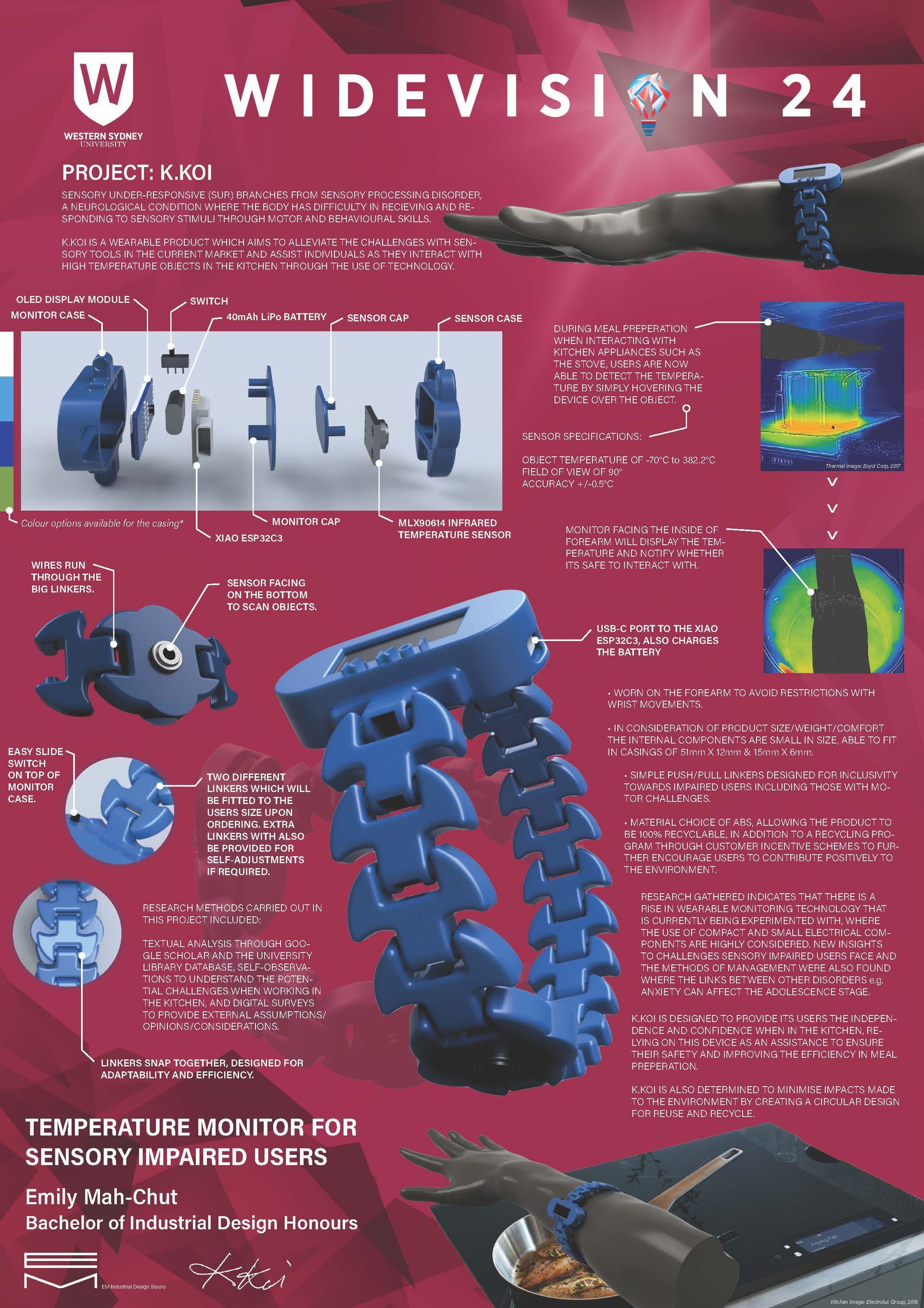Emily Mah-Chut
K.Koi - Infrared Temperature Sensor for Sensory Processing Disorder Individuals
PROJECT
K.Koi is a wearable product which aims to alleviate the challenges with sensory tools in the current market and assist individuals with sensory under-responsiveness (SUR) as they interact with high temperature objects. SUR branches from sensory processing disorder (SPD) which is a neurological condition where the body has difficulty in receiving and responding to sensory stimuli through motor and behavioural skills. In the sensory market, technological integration is still in the testing and development stage with new ideas revolving around micro technology and wearable devices. K.Koi is designed with the intention to utilise technology to improve user experience in the kitchen, monitoring the external surrounding temperature. This product will provide users with a sense of independence as they rely on the assistance of wearable monitoring devices. Creating new and effective experiences, the users will be able to interact with high temperature objects and liquids, ensuring security with the awareness of their environment.
Worn on the forearm to avoid restrictions to wrist movement, users will be able to monitor the temperature of their chosen item by simply hovering over it without the need to physically interact and potentially burn/harm themselves. The infrared sensor along with the size of the technological products were deliberately chosen in consideration of weight and comfort for the wearer. Designing with easily accessible mechanisms to attach/detach the band, this allows for inclusivity for all impaired users including those with motor challenges.
K.Koi’s desired outcome is to minimise potential negative impacts through sustainable practices. Following a circular economy, the product material choice of ABS presents a 100% recyclable system where incentive schemes can further encourage and excite customers to contribute positively to the environment.
Pushing for an eco-friendly outcome, this project will focus not only on material sustainability but also strategies in regards to shipping and packaging. Establishing carbon neutral shipping methods and sustainable packaging will create a stronger impact to the environment while also drawing in potential customers through the product image and intentions.

With respect for Aboriginal cultural protocol and out of recognition that its campuses occupy their traditional lands, Western Sydney University acknowledges the Darug, Eora, Dharawal (also referred to as Tharawal) and Wiradjuri peoples and thanks them for their support of its work in their lands in Greater Western Sydney and beyond.
Acknowledgement of Country
Western Sydney University Copyright © 2004-2024 | ABN 53 014 069 881 | CRICOS Provider No: 00917K | TEQSA Provider ID: PRV12061 (Australian University)

